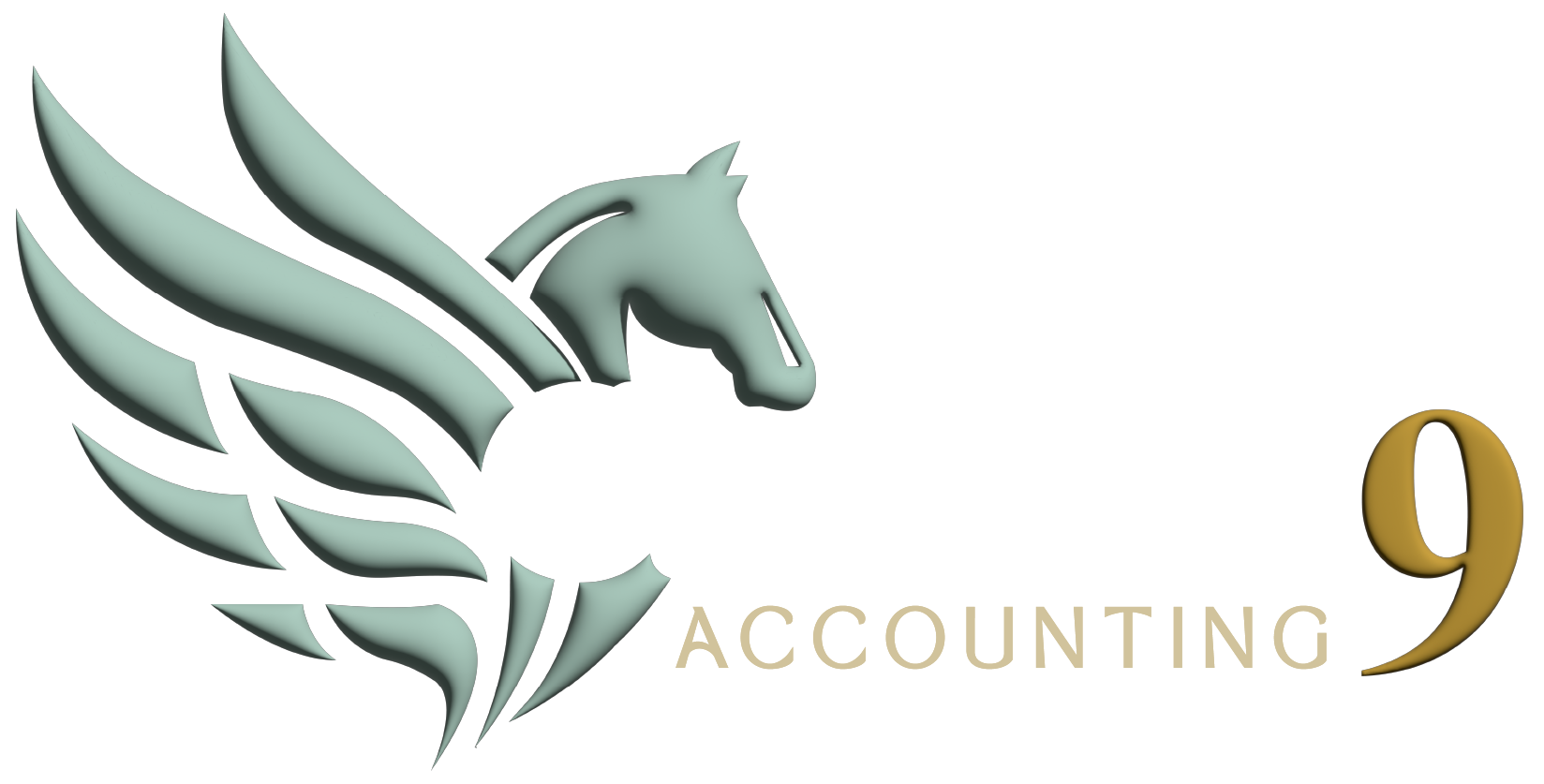Accounting vs. Bookkeeping: Understanding the Differences
Bookkeeping records data; accounting interprets it. Hire pros, focus on growing your business.

Introduction
Accounting and bookkeeping are two fundamental financial functions for any business, but they’re not one and the same. Many small business owners, startups, freelancers, and non-profits hear these terms and wonder how they differ. In simple terms, bookkeeping is about recording daily financial transactions, while accounting goes a step further to analyze, interpret, and report on those transactions . Both are crucial to your organization’s financial health and, ultimately, its success. In this blog, we’ll explore the key differences between bookkeeping and accounting, take a quick journey through their history (with some cool facts on how things were done in the past), and discuss how modern technology has transformed them. Most importantly, we’ll explain why having a strong bookkeeper and accountant on your team can help protect and grow your business – letting you focus on working on your business, not in your business.
A Brief History of Bookkeeping and Accounting
Ancient Origins: The practice of tracking finances is as old as civilization itself. Archaeological evidence shows that over 7,000 years ago in ancient Mesopotamia, merchants used clay tablets to record trades involving goods like grain and livestock . In fact, one of the earliest recorded names in history, Kushim, is believed to have been a bookkeeper who documented barley transactions on clay tablets . In ancient Egypt, detailed records on papyrus and even bone tags were used to track the Pharaoh’s inventories and tax collections . These early bookkeeping efforts were vital – they allowed societies to manage trade, taxes, and resources methodically, laying the groundwork for more complex economies .
The Birth of Double-Entry: Fast forward to the late 15th century and bookkeeping took a revolutionary leap in Renaissance Italy. In 1494, Luca Pacioli – a friend of Leonardo da Vinci and a mathematician – published Summa de Arithmetica, which for the first time described the double-entry bookkeeping system in detail . This system recorded every transaction in two places (debit and credit), ensuring the books were always balanced . Pacioli’s advice was that a person “should not go to sleep until the debits equal the credits,” underscoring the importance of accuracy . This double-entry method was groundbreaking for business – it provided a clearer and more reliable picture of finances and became the gold standard of accounting that we still use today. In fact, the very terms “debit” and “credit” come from Latin (“debitum” meaning “what is due,” and “creditum” meaning “something entrusted to another”) as noted by Pacioli .
Cool Fact – Accounting’s Crime-Fighting Role: Accurate bookkeeping isn’t just important for business; it has even made history in other ways. One famous example: notorious gangster Al Capone was finally brought down in 1931 not by brute force, but by accountants – FBI forensic accountants proved he was guilty of tax evasion when other charges wouldn’t stick . This dramatic story highlights that keeping proper books (or failing to do so) can literally be a make-or-break matter!
From Ledgers to Machines: For centuries, all bookkeeping was done by hand in thick ledger books. It was laborious and error-prone. The Industrial Revolution in the 19th century spurred the need for speed and precision. Innovations like the Burroughs adding machine (invented in the late 1800s) and early mechanical calculators made it faster and easier for bookkeepers to sum up accounts . By the early 20th century, businesses had grown in size and complexity, and maintaining accurate books wasn’t just good practice – it became a legal necessity for corporations to report finances properly . This period also saw accounting emerge as a formal profession (for example, the first organized group of professional accountants was established in the mid-1800s in Britain). Accountants were now recognized as essential experts entrusted with an organization’s financial integrity.
The Digital Age – From Spreadsheets to Cloud: The late 20th century introduced electronic bookkeeping. With the advent of personal computers in the 1980s, software like Peachtree (1978) and QuickBooks (early 1990s) allowed even small businesses to computerize their finances . However, those early accounting programs were usually desktop-based – installed on a single computer. This meant if that computer crashed or the data wasn’t backed up, years of financial records could be lost in an instant. Indeed, desktop accounting systems required manual backups and updates; if users forgot to back up regularly, they risked catastrophic data loss if the hardware failed . They also lacked real-time accessibility – you had to be at the office computer that held the books to work on them . In short, older local software was limited and could be vulnerable to loss or security issues if not diligently managed.
Modern Cloud Solutions: Today, bookkeeping and accounting have been transformed by cloud technology. Cloud-based accounting software (like QuickBooks Online, Xero, and others) allows data to be stored securely on remote servers and accessed through the internet. The benefits are huge: you can check your financial records from anywhere on any device, collaborate with your accountant in real time, and rest easy knowing automatic backups are happening in the background . In other words, because everything is stored in the cloud, you don’t have to worry about losing data – even if your laptop is stolen or your hard drive crashes, your financial data remains safe online . Cloud providers also tend to offer high-grade security (encryption, secure data centers, etc.), often more robust than what a small business could implement on its own, keeping sensitive financial information safer. Moreover, software updates are automatic and frequent, meaning you’re always using the latest, most secure version without having to manually install anything . The modern era has truly made the process of bookkeeping and accounting simpler and smoother – tasks that once took hours rifling through papers can now be done with a few clicks, giving business owners more timely insights into their finances.
Bookkeeping vs. Accounting: Key Differences Today
Although they work hand-in-hand, bookkeeping and accounting involve different tasks and skill sets. Here are some key differences between the two roles in today’s business environment :
- Scope of Work: Bookkeepers focus on the day-to-day task of recording financial transactions – they maintain the ledger of sales, purchases, receipts, and payments. In contrast, accountants handle a broader scope: they interpret and analyze the financial data recorded by bookkeepers, then summarize it into reports and financial statements, and provide insights or advice based on that information . In short, bookkeeping is about data entry and organization, while accounting is about understanding what that data means for the business.
- Objectives and Users: Bookkeeping information is primarily for internal use – it helps managers and owners see the raw financial picture. Accounting, on the other hand, prepares information for external use as well – for example, producing audited financial statements for investors, or tax returns for government authorities . Accountants take the baton from bookkeepers to communicate the financial health of the company to stakeholders outside the day-to-day operations.
- Processes and Timing: Bookkeeping is continuous and transactional. Bookkeepers record entries daily or weekly to keep the books up to date. Accounting processes occur at intervals – accountants might do adjusting entries monthly, close the books quarterly or annually, and generate key reports (like profit-and-loss statements or cash flow statements) periodically. Essentially, bookkeeping accumulates the data, and accounting turns that data into a bigger financial picture (often monthly or yearly).
- Complexity and Decision-Making: Bookkeeping is often seen as a foundational, support function, whereas accounting is more of a strategic function . A bookkeeper ensures the numbers are correct; an accountant uses those numbers to make or advise on financial decisions. For example, your bookkeeper will reconcile bank accounts and invoice clients, while your accountant will analyze those records to advise whether expenses are too high, whether to expand to a new location, or how to optimize taxes.
- Credentials and Regulation: There is a difference in training and regulation. Bookkeepers are not required to have advanced certifications – many are trained on the job or through courses, and they may hold a bookkeeping certificate or associate’s degree. Accountants typically have more formal education such as a bachelor’s or master’s degree in accounting or finance, and many also earn professional certifications (like CPA – Certified Public Accountant). In fact, accounting as a practice is governed by standards (for example, GAAP, Generally Accepted Accounting Principles, or IFRS internationally), whereas basic bookkeeping by itself isn’t regulated by such standards . This reflects how accountants carry a level of responsibility to ensure financial records follow certain principles and laws (e.g. for financial reporting or tax compliance).
Despite these differences, it’s important to recognize that bookkeeping and accounting are complementary. Bookkeeping provides the foundation that accounting builds upon . Without accurate bookkeeping, an accountant’s analysis will be flawed. And without accounting, raw bookkeeping data would have limited use for strategic decisions. In many small businesses, the line can blur – a bookkeeper might also generate basic financial statements, or an accountant might also do data entry for complex transactions – but the skill sets remain distinct.
To illustrate: “A bookkeeper handles the daily financial transactions and record-keeping of the business… A CPA (accountant) provides a higher-level review of finances and advises on taxes and compliance,” as one business guide explains . Think of the bookkeeper as maintaining the day-to-day financial engine, while the accountant navigates the ship using that engine’s output, ensuring compliance with laws and steering the company toward growth.
Why You Need Professionals for Both
If you’re not a trained bookkeeper or accountant, trying to do it all yourself can be risky and time-consuming. Hiring a competent bookkeeper and accountant is not just an expense, but an investment in your business’s success. Here’s why having a strong financial team matters:
- Accuracy and Compliance: A professional bookkeeper will accurately record transactions and keep your ledgers organized, greatly reducing errors. This means your financial reports will reflect reality, and you won’t be misled by faulty numbers . Meanwhile, an accountant ensures that your financial statements comply with accounting standards and tax regulations. They help you avoid costly mistakes – like missed tax deadlines or compliance issues – that could result in penalties . Essentially, they act as guardians of your financial accuracy and legality.
- Time Savings – Focus on Your Business: Small business owners often wear many hats, but focusing on core operations (or growing the business) is where your time is most valuable. Every hour you spend wrestling with spreadsheets or receipts is an hour not spent on strategy, sales, or serving customers. By delegating to a bookkeeper/accountant, you free up precious time. As one expert put it, with the time you get back, you can focus on sales, operations, customer service, and growing your business instead of becoming buried in administrative finances . This captures the essence of “don’t work in your business, work on your business.” Let the financial pros handle the books while you concentrate on big-picture leadership and innovation.
- Financial Insights and Strategy: A good accountant doesn’t just report the numbers – they help you interpret them. They can identify trends (like rising costs or seasonality in sales), highlight strengths and weaknesses in your finances, and advise on decisions such as pricing, expansion plans, or cost-cutting measures. In short, they make your money work for you by ensuring you have the information to deploy it wisely. As the saying goes, “when the money is working, your business works.” Keeping cash flow healthy and knowing your financial position in real-time can be the difference between a thriving business and one that struggles. A professional accountant can also assist with forecasting and budgeting, helping you set targets and plan for the future, while a bookkeeper keeps the day-to-day data flowing to inform those plans.
- Fraud Prevention and Accountability: Having a separate set of eyes on your finances introduces oversight that can prevent internal fraud or catch errors. Bookkeepers provide meticulous record-keeping that can flag discrepancies, and accountants often perform reviews or audits that double-check everything. This segregation of duties (especially as a company grows) is a cornerstone of good financial governance. For example, bookkeepers might reconcile bank statements, but an outside accountant may review those reconciliations – any irregularity is more likely to be spotted. This protects your business’s assets and gives peace of mind that your finances are in order .
- Planning for Taxes and Growth: Tax laws and financial regulations are complex and ever-changing. Accountants (particularly CPAs or tax accountants) are trained to navigate these. They can ensure you take advantage of deductions and credits, properly estimate taxes, and plan transactions in a tax-efficient way. Come year-end, a bookkeeper will have all your records ready and tidy, and your accountant will use that information to file accurate tax returns or prepare audited statements. Together, they help you avoid the last-minute scramble and potential mistakes in crunch time. Moreover, they can advise on growth – for instance, if you’re thinking of getting a business loan or attracting investors, well-kept books and solid financial statements are essential. Many small businesses find that having both a bookkeeper and an accountant provides the best of both worlds: day-to-day financial control and high-level strategic advice . In fact, one guide notes that every small business owner benefits from the insight and confidence that a bookkeeper and CPA working together can provide – this financial team frees up your time to focus on growing your business .
In summary, unless you’re truly well-versed in accounting yourself, it pays to “team up” with bookkeeping and accounting professionals. They ensure your money is managed correctly and efficiently. When your financial records are accurate and up-to-date, you gain a clear view of how your money is working for you. And when your money is working, your business works – meaning you have the stability and clarity to make the right business moves at the right time.
Conclusion
Accounting and bookkeeping might have humble origins in ancient ledgers and clay tablets, but today they are high-powered functions facilitated by smart technology and skilled expertise. Understanding the difference between the two helps you appreciate what each contributes to your business. Bookkeeping is the vital groundwork – the daily tracking of dollars and cents – and accounting is the intelligence that builds on that groundwork to drive decisions and strategy. Both have evolved dramatically from the past (imagine telling a merchant from 3300 BC that you’d be reconciling accounts on a smartphone in real-time!), and modern cloud software has eliminated many past headaches by making financial management more secure and accessible.
For entrepreneurs and small organizations, the takeaway is clear: focus on what you do best – building your business – and let professionals handle the financial side. A qualified bookkeeper and accountant can save you time, safeguard your company’s finances, and provide insights that help your business grow. They ensure that your financial engine runs smoothly, so you can steer confidently toward your goals. In the end, having a strong handle on your finances with the right people and tools is not just about “keeping score” – it’s about empowering your business to thrive. With your books in good hands, you can sleep easier (just as Luca Pacioli advised) knowing every debit and credit is in place , and wake up ready to work on your business, not in it.
References: The historical and technical insights in this article were informed by a variety of sources, including business accounting blogs and educational resources that discuss the evolution from ancient bookkeeping to modern cloud accounting , as well as small business advice columns on the roles of bookkeepers and accountants in driving business success . The facts and examples cited (with inline references) provide further reading for those interested in the rich history of accounting or the practical benefits of today’s financial management practices.
Lastest blog posts
Contact us
Discover how we can simplify your bookkeeping, streamline your accounting, and help you make smarter financial decisions. Reach out today! We’re here to help you save time, reduce stress, and grow your business.
Contact Us
Discover how we can help you meet your business goals.


